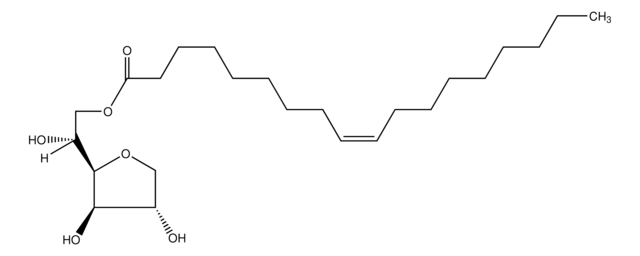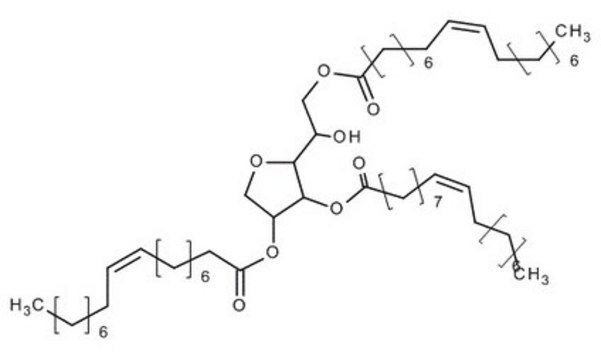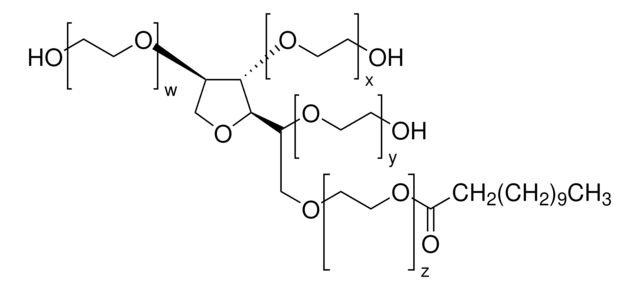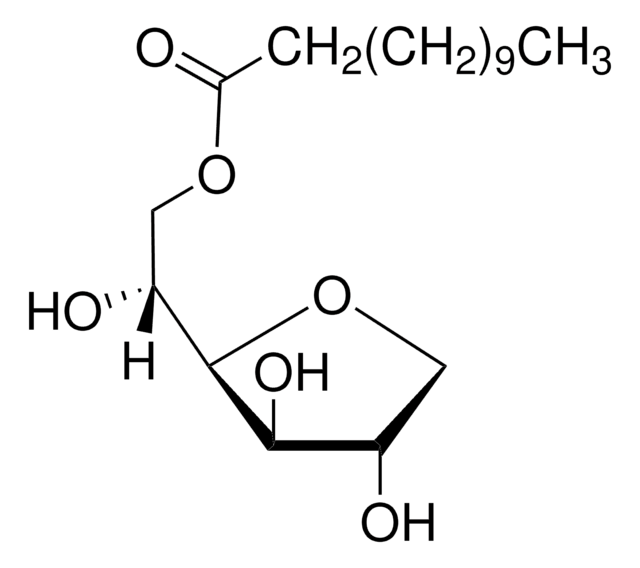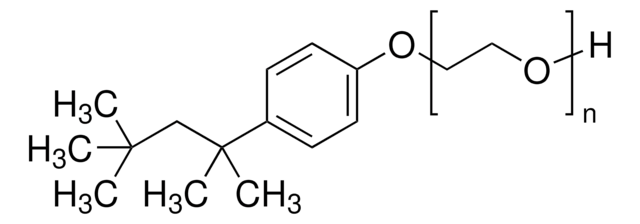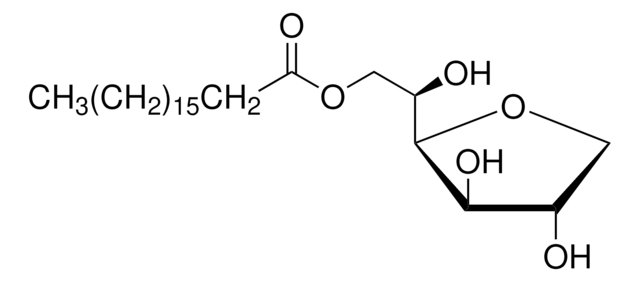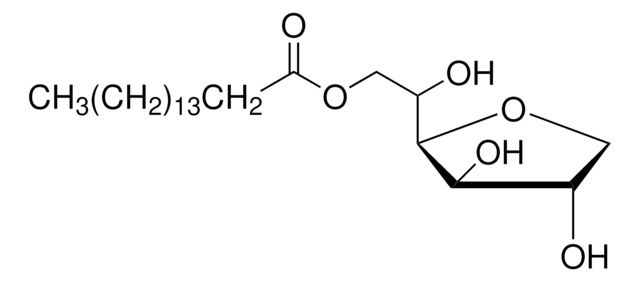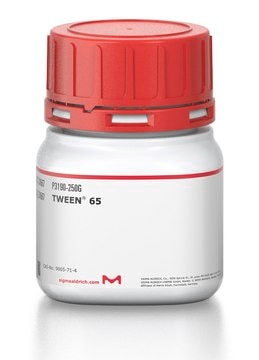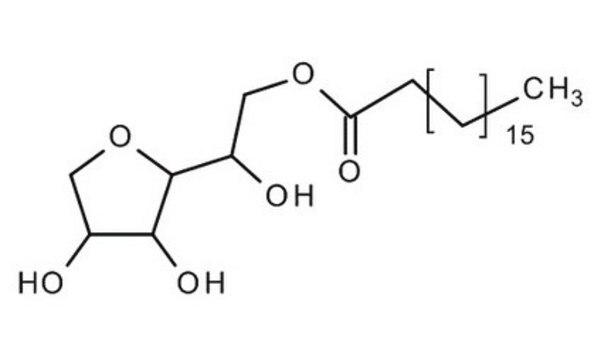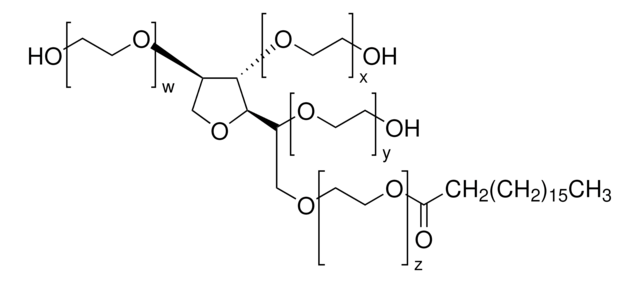About This Item
Recommended Products
description
non-ionic
Quality Level
mol wt
957.52 g/mol
solubility
chloroform: 50 mg/mL, clear, faintly to light yellow
HLB
1.8
SMILES string
CCCCCCCC\C=C/CCCCCCCC(=O)OC[C@@H](O)C1OC[C@H](OC(=O)CCCCCCC\C=C/CCCCCCCC)[C@H]1OC(=O)CCCCCCC\C=C\CCCCCCCC
InChI
1S/C60H108O8/c1-4-7-10-13-16-19-22-25-28-31-34-37-40-43-46-49-56(62)65-52-54(61)59-60(68-58(64)51-48-45-42-39-36-33-30-27-24-21-18-15-12-9-6-3)55(53-66-59)67-57(63)50-47-44-41-38-35-32-29-26-23-20-17-14-11-8-5-2/h25-30,54-55,59-61H,4-24,31-53H2,1-3H3/b28-25-,29-26-,30-27+/t54-,55+,59-,60-/m1/s1
InChI key
ZBNRGEMZNWHCGA-WECPCUOASA-N
Related Categories
General description
Application
Other Notes
Legal Information
Storage Class
10 - Combustible liquids
wgk_germany
WGK 1
flash_point_f
437.0 °F
flash_point_c
225 °C
ppe
Eyeshields, Gloves, type ABEK (EN14387) respirator filter
Certificates of Analysis (COA)
Search for Certificates of Analysis (COA) by entering the products Lot/Batch Number. Lot and Batch Numbers can be found on a product’s label following the words ‘Lot’ or ‘Batch’.
Already Own This Product?
Find documentation for the products that you have recently purchased in the Document Library.
Customers Also Viewed
Our team of scientists has experience in all areas of research including Life Science, Material Science, Chemical Synthesis, Chromatography, Analytical and many others.
Contact Technical Service